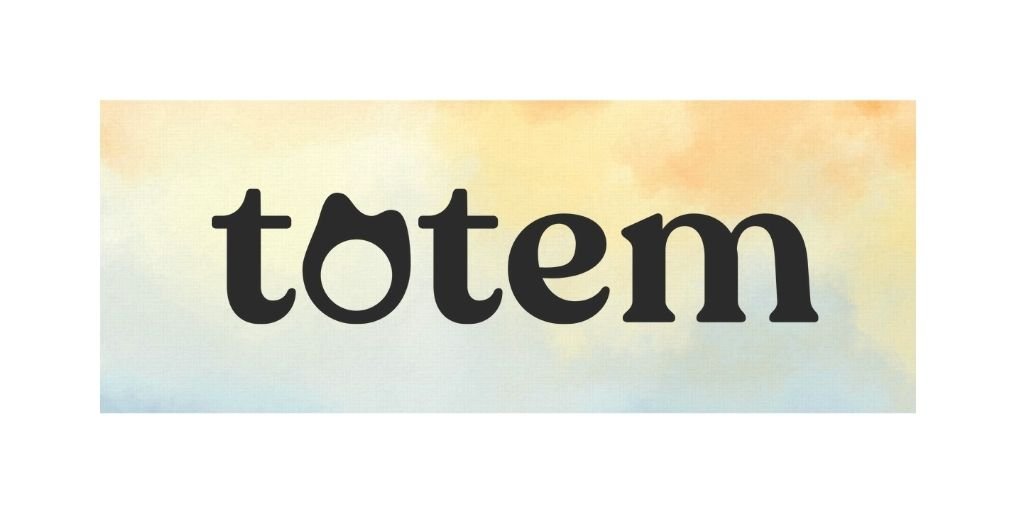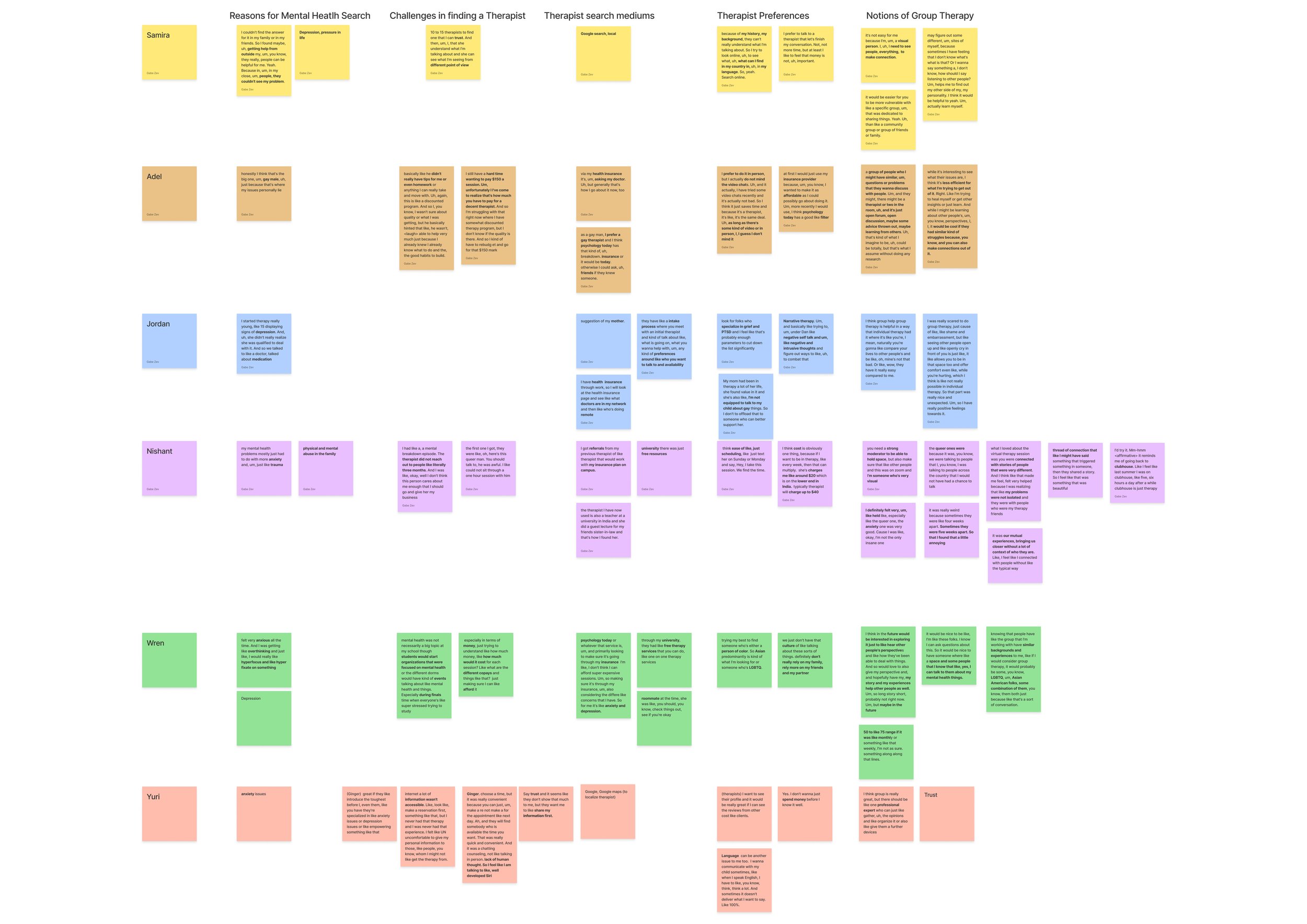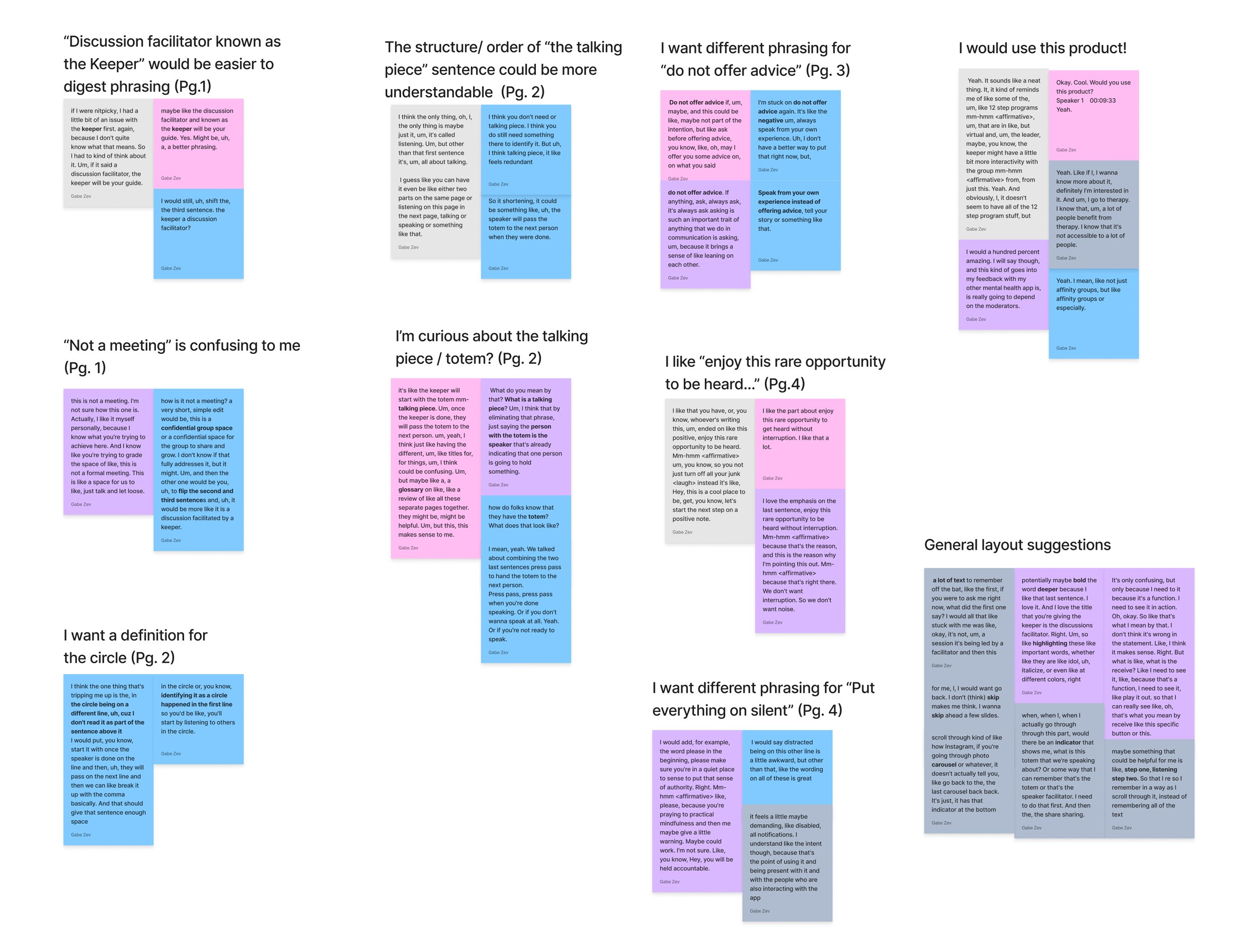Totem
Researching pain points for users in the mental health sphere in preparation for app launch.
From totem.org
UX Researcher
What is Totem?
Totem is a not-for-profit start-up based in San Francisco as an alternative to traditional therapy methods. Arguing that social media has divided us, the platform seeks to bring people together by creating “circles”, an ancient group practice where people can come together and all have a chance to speak, connect, heal, and grow.
“Totem is a modern take on the tradition of Healing Circles. We aim to address our collective need for support and connection. Totem's circles provide a community-based approach to self-discovery and growth. Totem is social healing.” Totem
Research
Mental Health Accessibility
Being that Totem is addressing the mental health crisis, I wanted to talk to users first of all on their experience with accessing mental health. What were their pain-points? How could we make this easier for them?
Usability Testing
Being that the app is ready to launch, it was time to test with actual users and see what they were saying. From the onboarding to utilizing the app itself, how could we better inform our design and make it a great experience?
Problem
How could we make our site and app a great experience for users as an alternative to traditional therapy methods?
Interviews part 1
Hitting the ground running by asking user’s pain points with traditional therapy, from finding a therapist to why they were in therapy to begin with. Being that we were an alternative to traditional therapy methods, we wanted to see how we could address this in our respective medium.
Above is the unsorted important quotes I took from interviews, where each interviewee is marked in a different color. Here we wanted to know their reasons for mental health services, the challenges they faced in finding a therapist, how they found a therapist (or didn’t), their preferences when it came to a therapist, and how they felt about trying group therapy since our app would be in group form.
Findings…
After charting the quotes of our group of users, I affinity-mapped the data into more understandable groupings. If more than one user is giving similar feedback they are grouped together. Above the groupings is a generalized summation. Here we can see the following important points:
Specialization: Users want therapists that have knowledge in their specific problem (LGBTQ+, grief, depression, anxiety, etc)
Culture/ Background: Users want to be able to filter therapists who are specific to their own culture or similar background.
Psychology Today/Insurance: Most people found therapists through Pscyhologytoday.com or covered through their insurance. Second was referrals through someone they knew.
Affordability: Price point was a big draw in how they would choose a therapist, and what is affordable to some is not to another - so the price results were varied.
Group Therapy: Initially, users did not want to try group therapy, but after asking them almost all of them said they would most likely find it beneficial.
Interviews part 2
Now that we knew a little more about what users wanted when it came to therapy we could get a little bit more in-depth about how this would apply to our platform.
Findings
Although we had a good base from the first round of interviews, the second phase would get more specific regarding price-point, reasons for mental health search, search mediums, and notions about group therapy to better inform our business model.
Reasons for therapy: Most people said they wanted to better their mental health. Meaning there was a great need for it, generally speaking. Second was treating anxiety, specifically.
Insurance: Most people found therapists through their insurance plan, followed by Pyschology Today, followed by their school or Google.
Cost: A huge point, most people felt comfortable paying an average of $75 or less for a session for individual therapy. For Group therapy, across the board people thought they should pay less with an average cost of $30 per session.
Group Therapy: Evenly split, most people found that even though they hadn’t tried group therapy it would most likely be beneficial to them - on the other side people said they would be more likely to try group therapy if it the group topic was of interest to them.
Onboarding
In the stage we were in the app, the importance of a good onboarding experience would be essential in getting our user base to not only sign up but also stay with us and not drop off. I interviewed users in our base to see what they thought about our current onboarding which explained our app, how it differs from traditional therapy, and what to expect. Rule of thumb, always very good to have a few sets of eyes!
Key Points:
“Try not to blame or judge others”… This is an instruction in the onboarding as a participant in the Circle. While this sentiment is good, users had a strong reaction to the wording and how it could be improved. Rather than phrasing it this way, it could be phrased in the positive telling people what TO do rather than what not to do. “Judgement-free zone” was a popular alternative.
“‘I’ and ‘We’ Statements”… Another instruction in behavior during the Circle, this could use more explanation as how to speak about yourself.
Keeper Confusion: This was a general thought a few people expressed, we didn’t explain in the that the “Keeper” is the group moderator in the onboarding which would be helpful to know.
Receiving and Passing: Unclear instructions on being in the circle. People “receive” the totem when it is their turn to speak, and “pass” it to the next person when they are done.
Spelling errors: Amazingly, a few spelling errors were found! Phew, close call.
Testing the App
Findings still in progress! To check out more of the progress at Totem check out https://www.totem.org/
Support our Indieagogo campaign https://www.indiegogo.com/projects/totem-app-game-be-heard-be-known-belong#/








